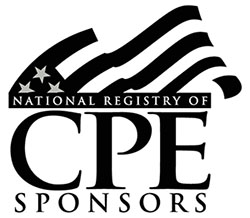
A Two-Day Classroom Seminar (CPE Approved)
Gathering and processing, pipelines, storage, LNG - the shale gas revolution has revealed a wide range of opportunities for companies that know how to leverage these assets. Companies are eager to diversify their portfolios, and understanding the unique features, benefits and regulatory constraints of midstream natural gas assets has become essential. This course will show you how these assets make money and are valued when changing hands. The agenda is grounded in real world economics, providing the knowledge and tools you need to benefit your organization immediately upon your return to work.
- The ability to estimate the value of midstream natural gas assets (gathering and processing, pipelines, storage, LNG facilities)
- A general understanding of the value of the gas industry, and the relative value of its components, from well-head to burner tip, for both the domestic market and the international export market.
- An understanding of the revenue drivers, risks, and costs associated with the various midstream assets, plus their unique benefits and constraints
- The essential knowledge needed to make better decisions about how much new and existing assets are worth before transacting on them
- Knowledge of the natural gas midstream supply chain and the economic drivers of each piece in the chain, as well as the historical context in which the business developed into its current state
- An understanding of how the value of an oil and gas field can drives the value of associated midstream assets
- Knowledge of the major ownership structures, the current environment for investments, and the contract structures underlying the financing of these assets
- An understanding of the high-level value drivers and risks involved with large and small scale LNG exports
- The market dynamics that could affect midstream assets going forward
Day OneÂ
8:00 am
Registration and continental breakfast open
8:30 am
Midstream Assets - What They Are, What They Do, and How They Make Money
- An overview of the world natural gas industry and how changes in the US are affecting that industry and leading to new investment opportunities.
- An overview of the economics of the entire natural gas supply chain, including production, processing, fractionation, transportation, liquids markets, storage and distribution, and liquefaction.Â
- Who are the key players and what roles do they play?
9:45 am
Industry Overview and Evolution
- A discussion of how the history of the natural gas sector in the US and worldwide has shaped the present state of the industry and the resulting value drivers
- What has changed and what does this mean about the future state of the industry?
10:15 am
Refreshment Break
10:30 am
How Midstream Assets are Financed and Owned - Advantages and Disadvantages of Each Structure
- How FERC regulates pipeline and storage tariffs and how that affects financing strategies
- Why some midstream assets are owned as standalone entities, some as partnerships, others as corporate subs, and some owned under the MLP structure
- The role of "open seasons" and how they enable projects to attract financing.
- A more in-depth exploration of how and why the MLP structure is becoming an increasingly important ownership structure in the midstream
- Recent drivers of growth in midstream assets
- Real life examples of the financing methods used by midstream firms.Â
12:00 pm
Lunch
1:00 pm
Oil and Gas Reserve Assets - Investment Decision Process
- Much of the value of midstream assets may be dependent on the viability of production assets, so no discussion of midstream assets would be complete without covering the production assets they are attached to
- How the value of a production asset drives the value of a midstream asset and how risk allocation through contracts may reduce the risk and increase value.
- High-level methods for estimating the value of these assets, as well as some of the associated terminology, like proved, developed, producing vs. non-producing, etc.
2:00 pm
Refreshment Break
2:15 pm
Gathering & Processing Financial Evaluation
- A discussion of how the liquids and commodity values affect the revenues of these assets and the estimation of the risks and costs
- Allocation of liquids and commodity value risk in contracts
- Real life of examples of the allocation of liquids and commodity value risks Â
4:15 pm
Contractual Commitments
- The different types of contracts employed in the execution of midstream transactions, like per MMBTU, life of field and other structures
- Real-life examples
- Common rights and responsibilities of parties to these transactions
5:00 pm
Day One concludes
Day TwoÂ
8:00 am
Continental breakfast opens
8:30 am
Interstate Natural Gas Pipelines
- AÂ discussion of the history of the interstate natural gas pipeline system and how regulation affects the revenue potential of these assets
- Examples of recent and ongoing pipeline new construction and expansions
- Some of the common contracts and features of pipeline assets
- The valuation methods used with these assets - e.g., original cost vs. reproduction cost
Small Group Exercise:
- Use simplified model to value a new transmission pipelineÂ
- Reunite with the full class to explain findings and discussÂ
Â
10:00 am
Refreshment Break
10:15 am
Storage Facilities
- The physical differences between different types of storage assets that drive value
- An overview of the valuation methods used with storage assets, including a discussion of how the option value is considered
Small Group Exercise:
- Use simplified model to value a new storage facility
- Reunite with the full class to explain findings and discussÂ
Â
12:00 pm
Lunch
1:00 pm
Overview of SNL Product Features Useful in Midstream Asset Valuation
1:30 pm
LNG Liquefaction Facilities
- Who are the players?
- A discussion of the factors that affect the value of liquefaction facilities
- Contracting and allocation of risk and potential rewards
Small Group Exercise:
- Use simplified model to value a new liquefaction facility
- Reunite with the full class to explain findings and discussÂ
2:30 pm
Refreshment Break
2:45 pm
Case Study: Major Mid-Stream Provider
- Issues surrounding midstream assets, values, and business strategies
3:45 pm
Future of Midstream Market and Wrap-up
- A look at how the industry is shaping up, given moves in consolidation, involvement of non-traditional asset owners, government incentives and geographic constraints
4:30 pm
Day Two concludes
- Additional attendees and government employees receive a 10% discount.
-
Register 4 or more attendees and receive 20% Off.
Special pricing is available for groups of 5 or more.
If you want attendees to pay with separate credit cards or have other questions, please call (440) 853-1038 for assistance.
This live group seminar is eligible for 10.5 CPE credits. Be aware that state boards of accountancy have final authority on the acceptance of individual courses for CPE credit. As of January 1, 2002, sponsored learning activities are measured by program length, with one 50-minute period equal to one CPE credit. One-half CPE credit increments (equal to 25 minutes) are permitted after the first credit has been earned in a given learning activity. You may want to verify that the state board from which your participants will be receiving credit accept one-half credits.


The Global Association of Risk Professionals (GARP) is a not-for-profit membership association dedicated to preparing professionals and organizations for making better-informed risk decisions. GARP's membership represents more than 150,000 risk management practitioners and researchers at academic institutions, banks, corporations, government agencies, and investment management firms in 195 countries and territories. GARP administers the Financial Risk Manager (FRM) and Energy Risk Professional (ERP) Exams – certifications recognized by risk professionals worldwide. Visit www.garp.org/cpd.
Analysts in financial services firms new to these investments who are looking to learn more about the actual risks and opportunities. Financial planning and analysis staff at more traditional energy companies who may be, considering how to best take advantage of mid-stream investment opportunities. Professionals at energy sector advisory firms with an interest in these types of assets and companies who invest in them
Participants are required to bring a laptop.
PGS in Partnership with SNL Energy seminars are known for their clear explanations and in-depth content. Register today, and join the energy professionals who have already attended one of these proven programs.
